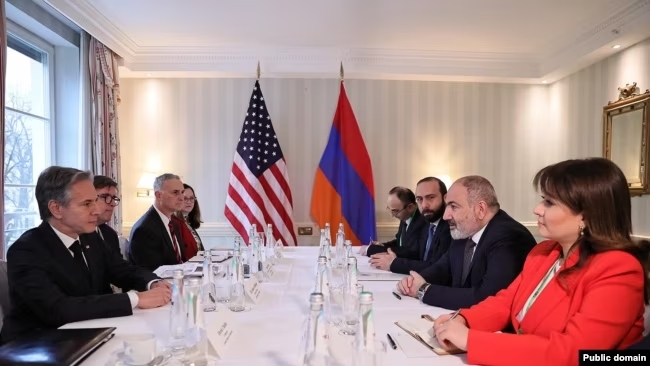YEREVAN (Azatutyun) — Prime Minister Nikol Pashinyan appears to have acknowledged that Armenia’s deepening ties with the European Union and the United States are causing unease in neighboring Iran.
“Our relations with Iran are deep and Armenia remains committed to those relations,” Pashinyan said during a weekend visit to Germany. “But this is one of those cases where not everything is clear.”
“Our good relations with Iran are causing tensions in some places, while our good relations with other countries are causing tensions in Iran,” he added without elaborating.
In recent months, Iranian leaders have repeatedly told their Armenian counterparts that Tehran strongly opposes the geopolitical presence of “extra-regional countries” in the South Caucasus. Iran’s President Ebrahim Raisi conveyed the same message to Armenia’s Deputy Prime Minister Mher Grigoryan as recently as on February 15. Any intervention of “outsiders” in regional disputes could only exacerbate, rather than resolve, them, Raisi said in a clear reference to the US and the EU.
This was interpreted by some Armenian commentators as a fresh warning to Yerevan which has been seeking closer security ties with the Western powers amid its unprecedented tensions with Russia. The latter has openly denounced Western efforts to broker an Armenian-Azerbaijani peace deal, saying that their main aim is to drive Moscow out of the region.
Both Russia and Iran have criticized Armenia for hosting a US-Armenian military exercise last September. The Islamic Republic is also believed to share Russian concerns about the EU’s monitoring mission along Armenia’s border with Azerbaijan launched a year ago.









